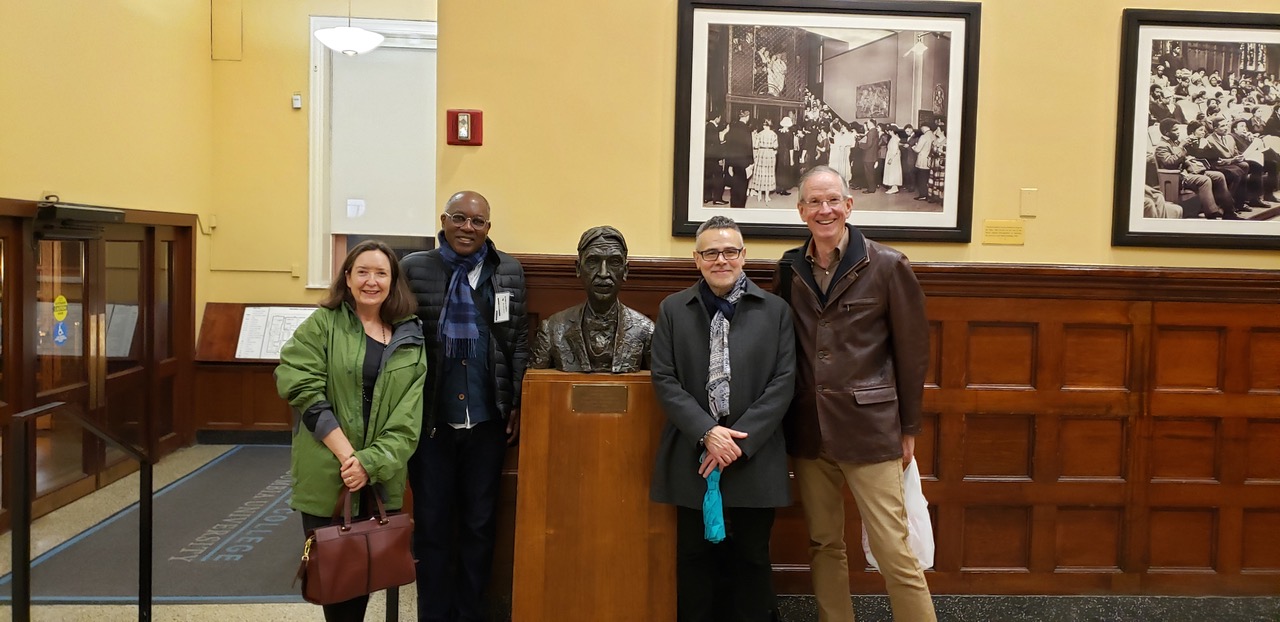This past academic term, professor Mario Di Paolantonio was invited by the Philosophy and Education program at Columbia University's Teachers College to give a talk titled “Education in Abject Conditions: Survival, Survivance and Education in Spite of it All.”
His talk considered how educational discourse, when applied to conditions of extreme poverty, tends to concern itself with equipping students with "life skills" and “social-emotional skills." However, doing so often burdens the child herself with the ongoing work of acquiring necessary skills and correcting her behaviour to assure her resilience, adaptation and survival in an ever-threatening environment.

Focusing on the educational work of schools in shanty towns in Latin America, Di Paolantonio’s talk examined how this prevalent tendency ends up blaming the child herself for her wretchedness and reduces her educational aspirations to an economic function. In contrast to this tendency, his talk explored the significance of recovering a more expansive appreciation of the “educational” that he finds still operates in these zones of extreme poverty. In spite of abject conditions, he traced the possibility of the “educational” – a thoughtful and creative approach to education that aims to appreciate the complexity of the child’s world making capacity – and how it affords children living in extreme deprivation with the possibility of taping into a sense of worldly “sur-vivance.”
Drawing on Hannah Arendt, Bonnie Honig and Jacques Derrida, Di Paolantonio mobilized the idea of survivance as “a something more,” a plus que vie, that exceeds the cruelty of merely serving necessity or servicing one’s survivability. Survivance helps us to think of “openings” within “closures,” and helps afford children (who will always have to live with and against their oppression) a sense of being together in the world that is more than simply their oppression.
Di Paolantonio's international award-winning research draws on ethical philosophy to study the varying manner in which memorial, aesthetic, and legal “forums” attempt to pedagogically reckon with historical wrongs. Along with Professor Silvia Grinberg (Buenos Aires, Argentina) he is currently working on a project exploring precarity, youth, and schooling in abject zones of Buenos Aires, funded by FONCyT (Fondo para la Investigación Científica y Tecnológica), Argentina. He has published widely and in various fields, including in philosophy of education, curriculum theorizing, political theory, social-legal studies, memory studies, and cultural practices and the arts. Some of his recent articles appear in such journals as Social & Legal Studies, Praxis Educativa, The Journal of Philosophy of Education, Studies in Philosophy and Education, and The Philosophy of Education Yearbook. Professor Di Paolantonio is an International Research Associate at the Centro de Estudios en Pedagogías Contemporáneas and the Escuela de Humanidades at the Universidad Nacional de San Martín (UNSAM), Buenos Aires, Argentina.
